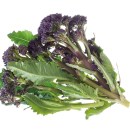Five tips on coping with addiction
Make a change with these five tips on coping with addiction by Robin Lefever, Anamaya addiction therapist and director of treatments

Recent figures show it’s middle-class professional women, aged 45-64, who are now drinking the most. The report by the Organisation for Economic Co-Operation and Development (OECD) reveals that women in the UK are twice as likely to be problem drinkers if they have a good education. Make a change with these five tips on coping with addiction by Robin Lefever, Anamaya addiction therapist and director of treatments
1) Be gradual. Once you have recognised your problem, the next step is to make a commitment to stop drinking. Although this stage typically takes five to seven days, there are serious risks associated with alcohol cessation that can be life-threatening. For this reason, alcohol consumption has to be reduced gradually when detoxing alone.
The severity of withdrawals can greatly vary, but these can be managed effectively in a controlled setting. Sometimes the fear of withdrawals or bad experiences when trying to quit, as well as unsuccessful prior attempts, can keep an individual stuck in their behaviour. Therefore, it is important to seek the advice of your doctor on how quickly you can reduce and if there are any medications they can offer to assist you. Proper care can minimise any uncomfortable symptoms and encourage the person to start making healthier life choices.
2) Enlist your family and friends. Be kind to yourself and give your family and friends a chance to support you. They may not understand exactly what you are going through, and they may have as many fears and difficult emotions as you do, but sharing them openly can lead the way to a constructive dialogue that can strengthen those relationships.
Just remember to not task them with fixing your problems – but to be there for you. Understandably, families and friends find it extremely hard to watch their loved ones struggle, and they may feel compelled to find solutions that may not be helpful. Be honest and open about your struggles and remove shame, guilt and embarrassment from the equation.
3) Connect with others who have similar goals. When you are tackling any problem, being surrounded by people who can relate to what you are dealing with can bring a constant flow of encouragement, guidance and assistance. Being a member of a group that shares similar goals will not only help keep you motivated but can also be an outlet you can turn to and lean on through tough times.
The oldest and most established self-help group for alcohol problems is AA, but some people may find its spiritual dimension off-putting, so why not try UK SMART Recovery self-help meetings as well? These are only psychology-based. Equally, shop around within these groups to find meetings you might prefer. They tend to take on more from the personality of the members than they do from the organisations, so try several meetings of each to find groups that you enjoy the company of the participants.
4) Seek professional help. There are various venues of help you can consult depending on the intensity of care and support you feel you need. Looking at your treatment options and understanding how each of them aims to help you is crucial to getting the right support. You are not alone.
If you have developed a dependency to alcohol, residential treatment can provide you with the medical attention and care you require to start making sustainable changes. Choose targeted approaches, in the sense that, even if it is one-to-one help that you are seeking, make sure it is with a specialist who is experienced in alcohol and addiction problems. The FDAP has a register of specialist therapists who can help.
5) Address your problems through a holistic approach. Modern medicine tends to treat physical symptoms, however, when alcoholism is viewed as a symptom that needs to be fixed, many other contributing factors that are still in play may remain unnoticed. Left unchecked, many problems that go hand-in-hand with alcohol abuse, such as depression and anxiety, can trigger further problems. You may also be relying on alcohol as a method of relaxation, having fun or even to mask discomfort. In this way, alcohol use may be serving a purpose and consequently will need to be replaced with positive strategies.
Treating the physical symptom can only provide temporary solutions, whereas treatments that are aimed at treating the whole person will not only inspire sustainable recovery but be instrumental in improving your overall quality of life.
‘Recognising Addiction’ is one of the brand new self-development modules available on the Anamaya app available on the iTunes store now. With more than 350 meditations and 14 new therapy-based self-development modules, Anamaya offers help with specific day-to-day issues to help users develop their mind for ‘a better way of being’.








